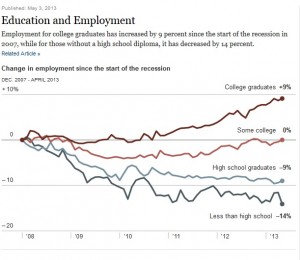Dear Commons Community,
In the past week, there have been several articles in the New York newspapers on the attempt of Cathleen Black and Mayor Michael Bloomberg’s staff to quell concerns about her nomination as New York City schools chancellor in 2010. The New York Times reported on May 2nd:
“As a groundswell of criticism threatened to capsize her appointment as New York City’s schools chancellor, Cathleen P. Black, a publishing executive with no background in education policy, was increasingly focused on one question: What would Oprah Winfrey say?
Eager for Oprah Winfrey to offer a testimonial on her behalf, Ms. Black dispatched a deputy mayor to broker an endorsement through Gayle King, a mutual friend. Later, Ms. Black went as far as to suggest talking points for the television star to keep in mind when describing the would-be chancellor.
“Tremendous leadership, excellent manager, innovator, mother of two and cares about the future of all children,” Ms. Black wrote in an e-mail to Ms. Winfrey on Nov. 17, 2010. “Grace under pressure.” She ended the message: “I owe you big time.”
The exchange was revealed on Thursday after the Bloomberg administration lost a legal battle to withhold a series of e-mail exchanges between Ms. Black and city officials, which the city had fought for two years to keep private.
The messages, written in the days before and after Mayor Michael R. Bloomberg appointed Ms. Black, capture the anxious efforts within the Bloomberg administration to quell the poor public reception to her selection, as education experts and lawmakers alike questioned her readiness for the job.
Even as City Hall aides arranged for Ms. Black to introduce herself to leading public officials, she appeared focused on securing endorsements from celebrities and socialites.
…The Bloomberg administration hoped the endorsements could help persuade the state education commissioner to grant Ms. Black a waiver to become chancellor, which she needed because of her lack of education credentials. Ms. Black eventually received the waiver, and the job. But she resigned just 95 days into her tenure, after Mr. Bloomberg concluded that the situation could not be salvaged.
Mr. Bloomberg overruled several of his top advisers in choosing Ms. Black, then the chairwoman of Hearst Magazines, to replace Joel I. Klein as chancellor. An outcry almost immediately ensued, forcing City Hall into a frantic public relations campaign to shore up her reputation with the public.”
In a second article published yesterday, the New York Times reported that it was not just Ms. Black’s initiative to garner the support of prominent women but a feminist strategy on the part of Mayor Bloomberg’s chief advisers.
“The idea was simple: a letter signed by some of the country’s most prominent women endorsing Cathleen P. Black, chairwoman of Hearst Magazines, to lead New York City’s schools.
But to gain the support of dozens of celebrities, authors and feminist leaders, aides to Mayor Michael R. Bloomberg privately advanced an argument they had mostly shied away from in public: that some of the opposition to Ms. Black’s candidacy in 2010 was grounded in sexism.
A trove of e-mail messages released on Thursday revealed the deliberations of Mr. Bloomberg’s political maestros as they sought to salvage Ms. Black’s candidacy.
As they prepared to contact dozens of famous women, his aides planned to use several talking points, among them Ms. Black’s managerial and business accomplishments, according to the e-mails. The aides also planned to argue that there was “clearly a difference” between the ways the public treated Ms. Black, “a female publisher without educational experience,” and her predecessor, Joel I. Klein, “a male prosecutor without educational experience.”
In the end, 28 women signed the letter, including Gloria Steinem, Evelyn Lauder and Whoopi Goldberg.
“Ms. Black has played a critical role breaking through the glass ceiling — not once, not twice, but time and again,” said the letter, which was addressed to the state education commissioner at the time, David M. Steiner.
A few boldface names deemed worth calling in the e-mails were absent from the letter.
One such prospect was Caroline Kennedy, who aides to Mr. Bloomberg thought would be sympathetic because of her awkward experience trying to win appointment to a Senate seat.
Others who did not participate included Bette Midler, Diane von Furstenberg, Liz Holtzman, Anna Quindlen and Deborah Norville. “
As mayor, Mr. Bloomberg has accomplished a good deal for the benefit of the city and its people but the handling of the Cathleen Black appointment was not one of them. Furthermore, it appears that media spin was common practice at City Hall where officials were not above taking advantage of legitimate social causes to push their political goals and objectives. In the case of Cathleen Black, she was completely unprepared to run New York’s school system and no amount of spin could have saved her.
Tony




